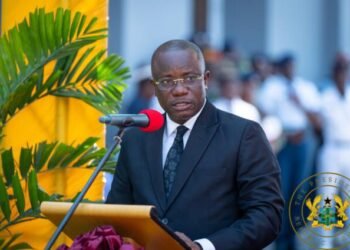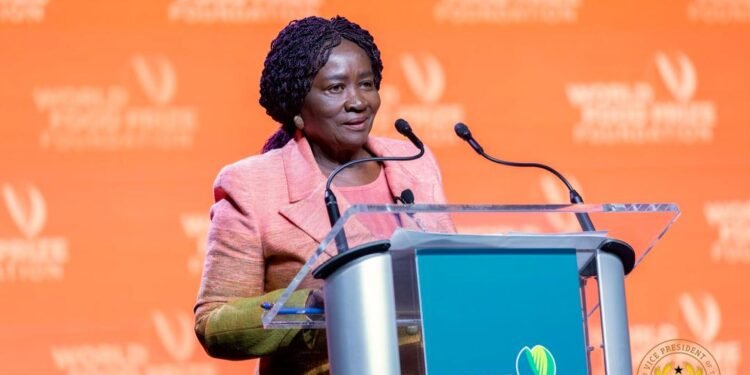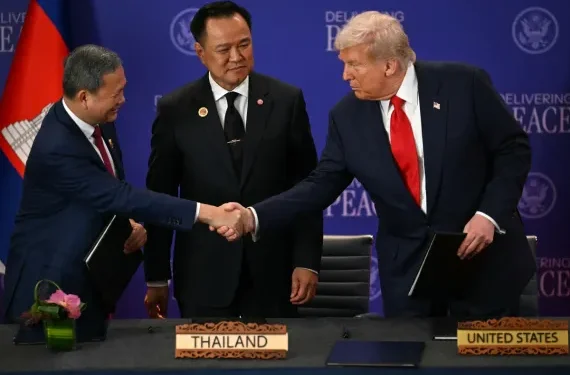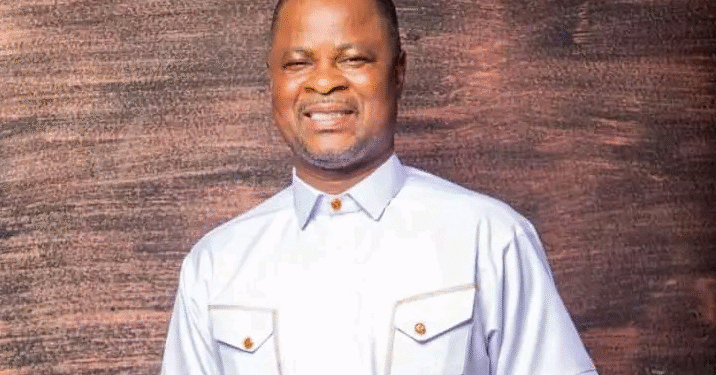Ghana is setting its sights on becoming a leader in Africa’s green transition with an ambitious roadmap to establish a fully functioning circular economy by 2035.
Speaking at the Landfill 2 Landmark Summit held at the Kempinski Hotel in Accra, Hon. Seidu Issifu, Minister of State for Climate Change & Sustainability, outlined Ghana’s strategic direction, sectoral priorities, and collaborative framework for achieving this transformative goal.
“Ghana is charting a clear course to transition from a linear economic model where products are produced, used, and discarded to a circular economy that is regenerative, resource-efficient, and inclusive.
“This transition is not just about environmental protection; it is central to our national development agenda.”
Hon. Seidu Issifu, Minister of State for Climate Change & Sustainability
A central thrust of the address focused on redefining waste not as a burden, but as a powerful economic resource.
According to Hon. Issifu, Ghana’s overdependence on landfilling and open dumping has stifled innovation and economic value creation. Instead, he urged a paradigm shift toward using waste as a raw material for innovation and entrepreneurship.

The Minister cited textile waste as a growing concern. With Ghana importing significant volumes of second-hand clothing, a substantial portion ends up in landfills or polluting marine environments.
He praised initiatives like Worn Again Ghana and CremeXchange that are pioneering circular fashion models centered on repair, reuse, and resale.
Plastic waste also received prominent attention. The government, he said, is partnering with Landfill to Landmark to develop a national Extended Producer Responsibility (EPR) framework a policy tool that will mandate producers to manage the post-consumer lifecycle of their products.
“These upcoming EPR regulations will ensure producers take full ownership of their products’ end-of-life impacts, thereby driving innovation upstream.”
Hon. Seidu Issifu, Minister of State for Climate Change & Sustainability
Youth at the Forefront

Hon. Issifu was quick to spotlight the transformative role of Ghana’s youth in the circular transition. Across the country, young entrepreneurs are converting textile waste into fashion lines, plastic into pavement blocks, and biomass into biochar.
“Our young people are already leading the way. The role of youth in the circular economy cannot be overstated.”
Hon. Seidu Issifu, Minister of State for Climate Change & Sustainability
He announced ongoing efforts to embed circular economy principles into entrepreneurship programs and curricula at all educational levels.
Through initiatives such as the Youth Climate Action Fund, the government is expanding access to funding, training, and innovation hubs to empower young change-makers.
The Minister underscored that the circular transition cannot be government-led alone. He made an open call for public-private partnerships, academic collaborations, and international support to catalyze systemic change.
“We invite businesses, researchers, and global allies to co-design interventions, share technology, and unlock financing that supports Ghana’s sustainable consumption and production goals.”
Hon. Seidu Issifu, Minister of State for Climate Change & Sustainability

This collaborative spirit, he said, is essential to move beyond pilot projects and toward scalable circular industries.
He welcomed startups and businesses that are already integrating circularity into their models, calling them “trailblazers of green industrialisation.”
The Minister detailed plans to improve Ghana’s waste governance through data-driven policy. This includes developing better systems for waste tracking, carbon accounting, and lifecycle assessments.
The upcoming EPR framework will require producers to register and report on their environmental performance, increasing accountability across the value chain.
“Evidence-based policymaking is at the heart of our strategy.
“With robust data, we can target interventions more effectively and attract investment into sustainable infrastructure.”
Hon. Seidu Issifu, Minister of State for Climate Change & Sustainability
Call to Action: A Regenerative Future Within Reach

Hon. Issifu called on all stakeholders investors, entrepreneurs, educators, civil society, and media — to take active roles in shaping the national circular economy roadmap.
“Ghana’s journey toward a circular economy is not just a policy shift — it is a societal transformation.
“It is about rethinking value, redefining responsibility, and reimagining development.”
Hon. Seidu Issifu, Minister of State for Climate Change & Sustainability
The Minister urged attendees to participate fully in upcoming working groups and discussions focused on the EPR framework, emphasizing this as a vital opportunity for co-creation and impact.
“Together, we can turn Ghana’s waste into wealth, our environmental challenges into climate-smart solutions, and our youth into champions of regeneration.
“Let’s build this future now boldly, collaboratively, and inclusively.”
Hon. Seidu Issifu, Minister of State for Climate Change & Sustainability
The Landfill2Landmark Summit marks a critical milestone in Ghana’s sustainability journey, setting the stage for collaborative action and long-term transformation.
With the roadmap to 2035 now publicly outlined, all eyes are on the implementation phase and the partnerships that will shape Ghana’s circular future.
READ ALSO: Equities Tread Water as Policy Rate Remains at 28%, Financial Analyst Warns























